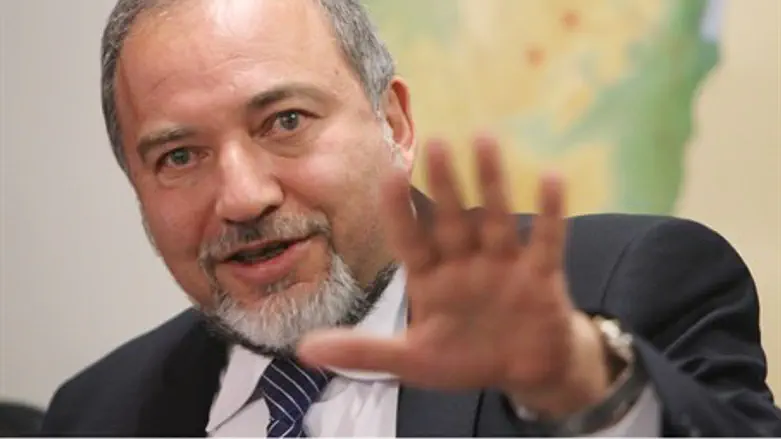
On more than one occasion, officials have refused to appear when invited to testify at Knesset committees, especially the Knesset Foreign Affairs and Defense Committee – and MKs, especially Avigdor Lieberman, chairman of the committee, have had enough. Lieberman, along with other MKs, is preparing a law that would allow Knesset committees to issue subpoenas to MKs who are reluctant to testify before them – with penalties for those who fail to show up.
The Law for Increasing the Efficiency of the Supervisory Role of the Knesset Foreign Affairs and Defense Committee, as it is known, is being written specifically for ministers and other officials who fail to appear when invited by the Committee, Lieberman said, but could easily be expanded to include other committees as well.
Those who refuse to honor invitations will be subject to penalties. Ministers and government officials will be referred to the legal department of the Civil Service, while IDF officers who don't come when called will be dealt with by the IDF Prosecutor's Office. MKs and ministers who refuse invitations will have to provide a good reason for doing so to the Knesset Speaker's Office. If the reason is not accepted and the official continues to refuse the invitation, s/he can be subpoenaed, with various legal penalties, including a fine and action by the Knesset Ethics Committee.
In addition, the law states, the Chairman and Vice-Chairman of the Committee will be able to visit any facility under its supervision at any time, without an advance appointment. For the Knesset Foreign Affairs and Defense Committee, this would include almost anything having to do with defense, from an IDF outpost to Mossad headquarters. The Committee will also be able to demand any and all information about the facility's activities – with refusals dealt with through fines and further legal action.
Besides showing up, the law will demand that officials provide full disclosure of any issue the Committee wants to know about. Officials who provide incorrect, inaccurate, or incomplete information will be subject to penalty as well. The law provides for closed sessions where appropriate, so security breaches on sensitive manners need not be an issue, said Lieberman.
Sponsoring the law along with Lieberman are MKs Eitan Cabel (Labor) and Ofer Shelah (Yesh Atid).
“Unfortunately the Knesset deals primarily with legislation, and less with supervision, but the situation is difference in the Knesset Foreign Affairs and Defense Committee, which is supposed to supervise both public and secret operations and projects. Unfortunately the defense establishment often sees us as an intrusive force, and too frequently we are told by officials that they will not testify, or their testimony is incomplete,” said Cabel.
This kind of behavior has a very negative impact on Israeli security, he said, because it places the Committee in the position of developing policy based on incomplete or incorrect information. Getting accurate information on issues is key to developing the proper policy, he said, and it was very important that the law be approved by the Knesset.